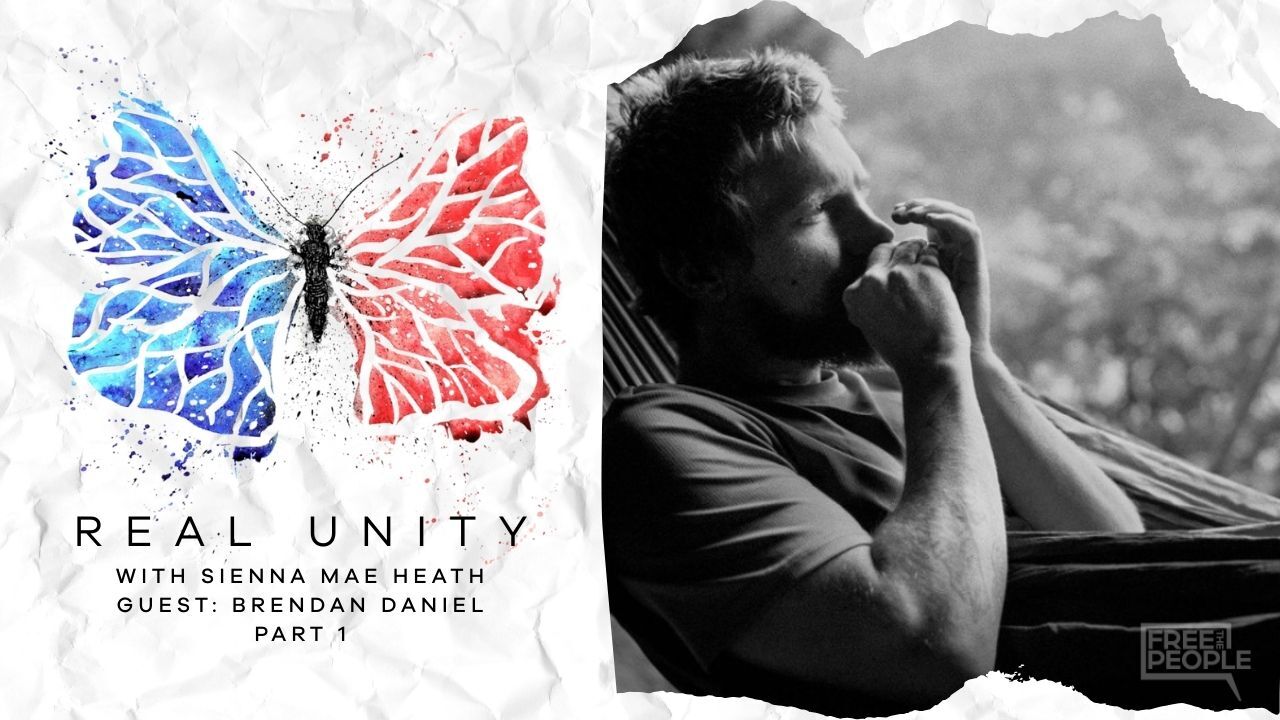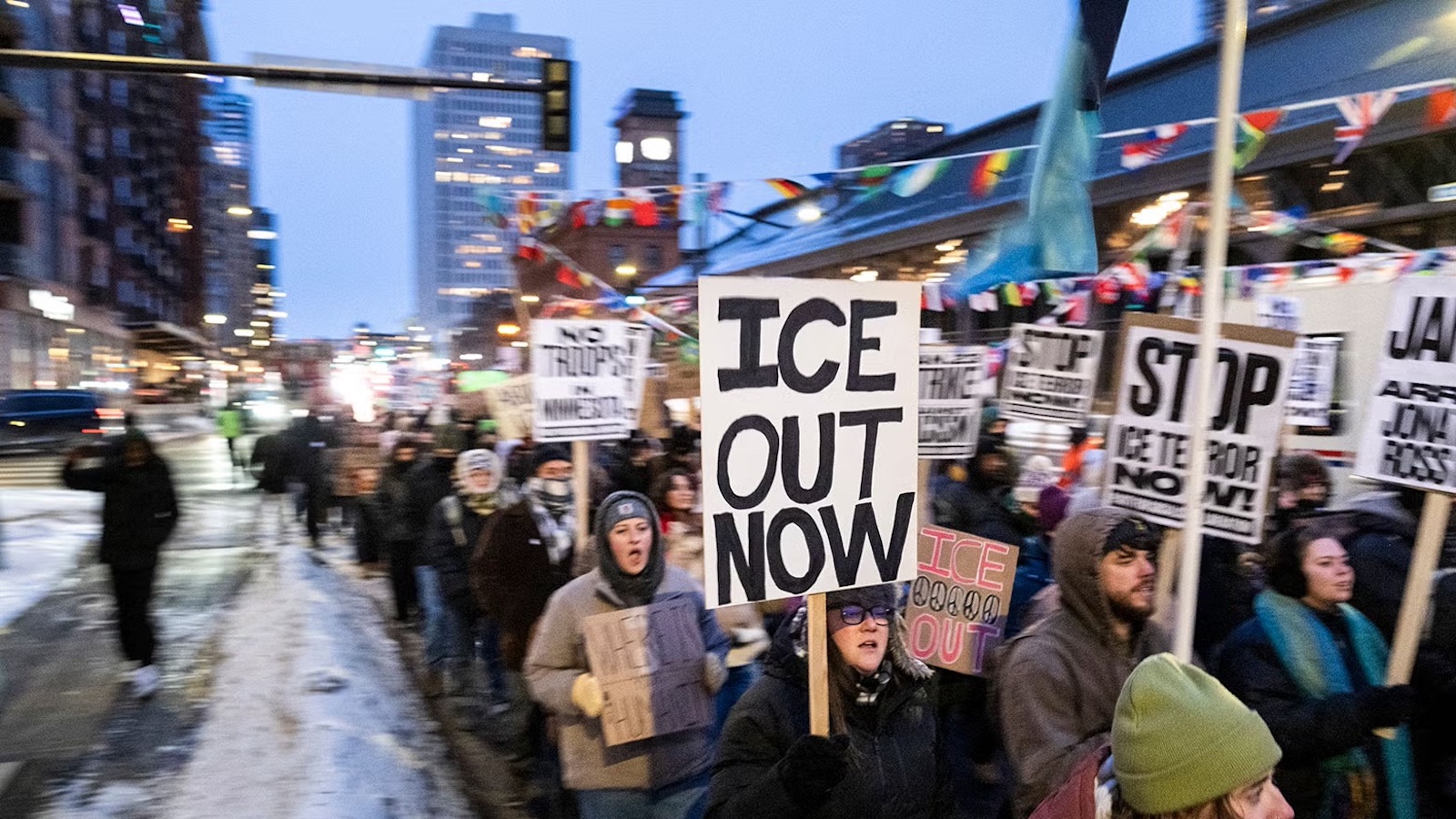
Liberty: The Universal Scapegoat
Society is plagued with a multitude of various ills. Maybe you’ve noticed. And when confronted with a problem, the most natural thing for we mere mortals to do is not to solve it, but rather to find someone to blame. Scapegoating is a concept so deeply ingrained in the human psyche that we can trace it back thousands of years, at which point it even had a magical and religious significance. According to tradition, the evils of a community were symbolically loaded onto the back of a helpless beast who would then be driven out of town, supposedly taking bad fortune with it.
Nowadays, we need no such ceremony in order to heap blame where it doesn’t belong. Thanks to the magic of social media, we can just say things and hope no one calls us on them. There’s certainly plenty of blame to go around for a struggling economy, a lack of social cohesion, and the legion of psychological problems afflicting young Americans, and ordinarily we can see the finger pointing doled out in a predictably partisan and tribal way. Democrats blame Republicans, Republicans blame Democrats. Trump supporters blame the Biden Administration, and Biden’s… well, I don’t know that he has any actual supporters, but the people who prefer him to the 45th President aim their rhetoric at the “basket of deplorables” who voted for him.
This is all very boring and repetitive, and yet there is one target of scapegoating that I routinely see brought up by members of both parties: personal freedom. Now, if you’ve been following politics for the last couple of decades, you may be under the impression that liberty is an entirely partisan issue. After all, we were told for years that the very word freedom was a far right dog whistle used to disguise fascism, racism, and homophobia. Opponents of gun control are mocked for valuing the freedom to bear arms. Advocates for lower taxes are criticized for placing their “selfish” personal freedom above the social contract and the needs of the poor. During the pandemic, the almost universally right-of-center critics of lockdowns were accused of killing grandma, with Arnold Schwarzenegger memorably shouting “screw your freedoms” at those who didn’t want to wear face masks.
But the left doesn’t have a monopoly on demonizing freedom. In recent years, the political landscape has seen a rise in right wing populism, an ideology that stresses tradition, family, nationalism and, most importantly, a belief that members of society should serve a collective rather than individual purpose. A while back, I pointed out that Jordan Peterson, a darling of the New Right, criticized the idea that “individual autonomy is a higher good” and that Sen. Josh Hawley, the poster boy for National Conservatism, agreed with him, adding that “serving others” was a more important goal.
This week, I was dismayed to see that these attitudes have continued to gain traction, as I happened upon a clip of Louise Perry, columnist for The New Statesman and the Daily Mail, saying that the real problem with radical feminism is that it’s “an ideology that prioritizes freedom above absolutely everything else.” I could go on at some length about the issues I have with radical feminism, but the claim that feminists simply value freedom too highly is one that never would have occurred to me in a thousand years. I mean, we’re talking about an ideology that demands quotas and mandates to make sure women are equally represented in business and government, and which actively opposes personal choices for women who, for example, prefer raising children to running a Fortune 500 company or hearing cases on the Supreme Court.
Perry’s comment is perhaps a minor one, but it points to a trend I’ve been noticing for some time. “Too much freedom” has become a universal diagnosis for just about every social ill, as viewed from both the left and right wings of politics. Of course, it can’t be the case that both progressives and conservatives care too much about freedom. If that were actually the case, we would doubtless see a society bent on repealing laws, lowering taxes, and empowering individuals to live their best lives instead of one which requires a license to perform roughly a third of all jobs, and which has so many rules and regulations that most of us commit an average of three felonies a day without realizing it. A world that actually prioritized liberty probably wouldn’t have spent two years banning people from operating their businesses, preventing them from leaving their homes, demanding universal injections of a new drug, and censoring anyone who dared to express an unpopular opinion.
There are no libertarians in Congress or in the White House. Hollywood and the news media are run by authoritarians. Academia is almost wholly captured by technocrats, and big business is more concerned with maximizing their DEI scores than with promoting anything close to personal liberty. Principled defenders of freedom have virtually no power in modern society, so why have they become the boogeyman for both left and right alike? The only answer I can think of is that, despite their overwhelming advantage on practically every front, the authoritarians feel threatened.
People fear what they can’t control. The world is a big, complicated, and scary place, and it’s easy for the individual to feel overwhelmed by the forces around them. It is therefore natural for those insecure of their own position to resent the chaotic unpredictability of their fellow human beings, and to seek to rein them in. I think it’s reasonable to understand these persistent attacks on liberty as a manifestation of fear. And while it can be discouraging to see such hostility coming from all sides, the very fact that this fear exists to the point that it motivates actions and rhetoric should be a source of hope. If the authoritarians feel so insecure that they have to devote significant energy towards opposing freedom, it may mean that we have more power than we realize.
It’s long been a truism that if the Republicans and Democrats agree on something, it must be a bad idea. At the very least, we can take comfort in the fact that, in order for our ideas to attract such universal vitriol, they must be pretty near the mark.
Free the People publishes opinion-based articles from contributing writers. The opinions and ideas expressed do not always reflect the opinions and ideas that Free the People endorses. We believe in free speech, and in providing a platform for open dialogue. Feel free to leave a comment.



